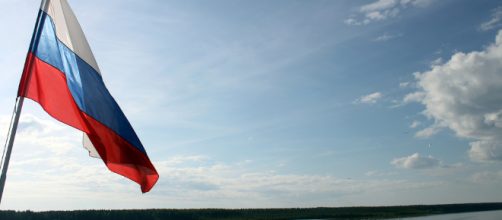One of the biggest geopolitical situations in the world today concerns the growing tensions between North Korea and the United Nations. These tensions got an unexpected shock this week when Russia announced that it plans on deporting North Korean workers back to their homeland by 2019. As many as Ten Thousand of these workers are expected to be deported.
This move, which was announced on Tuesday, is part of the most recent sanctions levied against North Korea by the U.N. Security Council. These sanctions are designed to punish North Korea for its recent spate of missile tests.
The sanctions passed by the U.N. Security Council state that all North Korean workers living within member nations must be repatriated by December 22, 2019. The United States, the United Kingdom, Russia, China, and France make up the five permanent members of the U.N. Security Council.
Russian ambassador to North Korea, Alexander Matsegora, publicly addressed the issue by saying that Moscow has to abide by the U.N.'s regulations.
"We will have to obey the Security Council decision and send all workers from Russia by the end on 2019," Matsegora is quoted as saying by Reuters. Matesgora, a recipient of North Korea's Order of Friendship, added that there are no illegal immigrant workers in Russia.
A strained relationship
Ever since Donald Trump officially entered the White House in January 2017, he and his administration have been publicly speaking out against Moscow and Beijing for pursuing a conciliatory line to the dictatorship of Kim Jong-un.
"Russia is not helping us at all with North Korea," President Trump told Reuters early last month. "What China is helping us with, Russia is denting. In other words, Russia is making up for some of what China is doing."
According to Breitbart, The Trump administration is especially angry over reports that claim that Russian oil tankers often refuel North Korean ships at sea. Elsewhere, U.S. officials claim that Moscow has been complacent in enforcing U.N.
Security Council sanctions on Pyongyang. For his part, Russian President Vladimir Putin has been a sharp critic of U.S. policy regarding North Korea. Mr. Putin once said in an interview that North Koreans would rather "eat grass" than give up their nuclear weapons. The disposal of these weapons is the cornerstone of the Trump administration's North Korean policy.
Harsh existence
Despite the words of Mr. Matsegora, there is plenty of evidence to suggest that thousands of illegal North Korean workers are employed in the Far East provinces of Russia.
A recent article in The Moscow Times claims that Andrei Tarasenko, the governor of Russia's Pacific Primorye region, has petitioned Moscow in order to stop the government's deportation plans.Today, thousands of North Korean laborers enjoy "slave-like" conditions in Russia, where the country's Labor Ministry frequently denies local employers the right to give official permits to their immigrant workers.
Despite often working twenty-hour days for very little pay (a large portion of which is sent back to North Korea as part of "planned contribution"), many North Korean workers prefer life and wages in Russia. It is widely suspected that North Korean laborers were responsible for building a major stadium in Saint Petersburg ahead of the 2017 FIFA Confederations Cup.
The U.S. and the U.N. believe that North Korean workers in Russia, Poland, and other nations are helping to finance Pyongyang's missile program.


